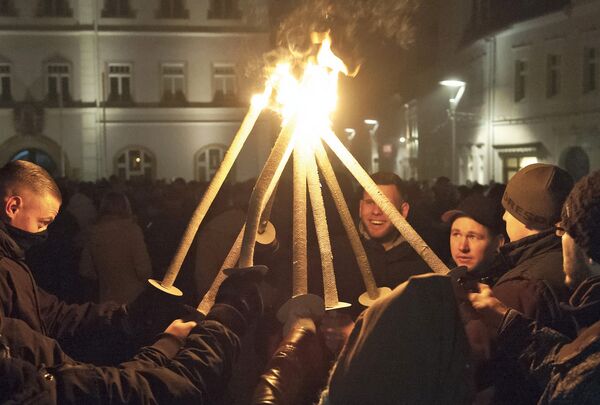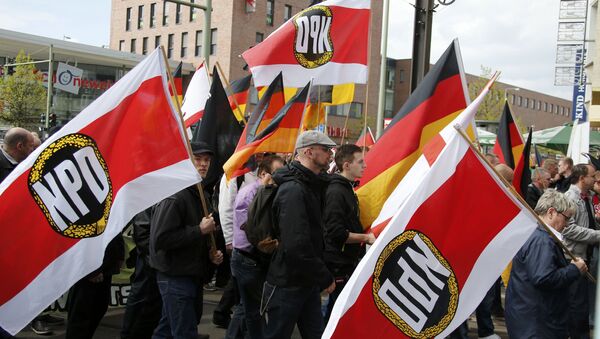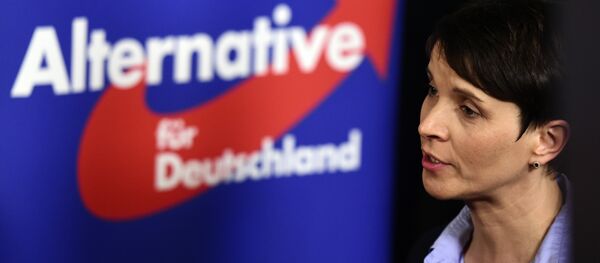Germany's upper house of parliament, the Bundesrat, first tried to outlaw the party in 2001, accusing it of neo-Nazism and anti-Jewish sentiment. The court rejected a ban in 2003 following two years of judicial enquiry, but lawmakers filed a new petition in 2013.
Supreme Court judge Andreas Vosskuhle ruled that the NDP aims to "replace the existing constitutional order with an authoritarian national state in accordance with an ethnically defined 'national community.'"
"The NPD has a relationship with National Socialism. The concept of 'national community,' the anti-Semitic basis and the contempt for the existing democratic order show clear parallels with National Socialism," Vosskuhle said in his verdict.
However, he noted that with less than 6,000 members, the NPD has "limited campaigning capacity and little impact on society," and asserted that the party therefore doesn't represent a threat.
"There is (currently) a lack of real, concrete evidence to show that it is possible for this [the NDP's] behavior to lead to success," Vosskuhle said.

"I find it regrettable that the NPD has not been banned. This party is a sounding ground for neo-Nazis, it has a lot of relevance. Since it was founded in 1964, it has terrorized democrats, trade unionists, leftists and migrants in Germany. In this respect, I wanted a ban," Movassat said.
"At the same time, I am glad that the Federal Constitutional Court has clarified that the NPD is an anti-constitutional party and that it is related to National Socialism. This is an important clarification. And in a way, it is, of course, this is a slap in the face for the NPD, when the Federal Constitutional Court says 'you are meaningless.' This certainly offends the neo-Nazis, but I believe, as I said, that a ban would have been a clearer signal."
"I think the NDP is finished," he said, adding that the general struggle against neo-Nazism is of greater importance than an individual ban on the NDP. This includes protesting against Nazi marches and challenging the ideology of neo-Nazism.
In elections in September 2016, the NDP lost its last remaining state parliament seat, in Mecklenburg-Vorpommeln. The result left the party with political representation at the municipal level, and one Member of the European Parliament, Udo Voigt.
In the most recent state elections in Germany's 16 states, the NDP gained more than one percent of the vote in elections in seven of them, and gained more than three percent in three of them: Saxony (4.95 percent in 2014), Thuringia (3.6 percent in 2014) and Mecklenburg-Vorpommeln (3 percent in September 2016). According to German law, a party must cross the 5 percent threshold before it can enter parliament.




